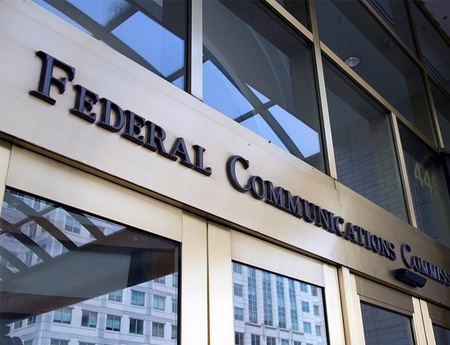FCC Set-Top Proposal Gets Some Love

The smarter way to stay on top of broadcasting and cable industry. Sign up below
You are now subscribed
Your newsletter sign-up was successful
Related: Cable-Satellite Group Slams Wheeler's Set-Top Plan
Activist groups and some legislators were quick to applaud FCC Chairman Tom Wheeler's proposal to open up MVPD set-tops to competing video providers to make it easier for consumers to access both traditional and over-the-top video.
Sen. Richard Blumenthal (D-Conn.) said he would be weighing in with comments at the FCC on the proposal, but he already liked what he saw.
“The FCC today took the first step to break open this market and help consumers retake control of their monthly cable bills," he said. "By requiring cable and satellite companies to provide a common technological standard to app developers and electronics manufacturers, this proposal would force television providers to compete just like in any other market. Opening the marketplace to innovation will have a positive impact not just on prices, but also on consumer experience."
Sen. Ed Markey (D-Mass.), a longtime proponent of opening up the set-top box market who teamed with Blumenthal to push for big changes to the set-top regime, added his praise to the chorus.
“Exactly 20 years since the passage of the 1996 Telecommunications Act, the FCC is finally on its way to fulfilling the promise to American consumers of a competitive and robust video box market," Markey said. "Since Congress voted to repeal the integration ban, I have called on the FCC to use its authority to promote a fair, competitive marketplace for video boxes. I commend Chairman Wheeler for his proposal to help ensure that consumers are not captive to bloated rental fees forever. Consumer choice should fuel the video box market, not cable company control. In the 21st century, consumers should be able to choose their set-top box the same way they choose their mobile phone.”
“The FCC’s proposal has the potential to unlock the TV set-top box market, giving consumers relief and paving the way for cheaper, alternative choices, as well as creating more opportunities for independent and minority programmers," said Rep. Anna Eshoo (D-Calif.), ranking member of the House Communications Subcommittee. “Think back to the days when Ma Bell required customers to only rent their phones from them. When the FCC lifted this prohibition, consumers not only saved money, but innovation thrived in the telephone market."
The smarter way to stay on top of broadcasting and cable industry. Sign up below
“It’s time to eliminate this $20 billion boondoggle and leapfrog into the second decade of the 21st century and all it has to offer.”
Activist groups were lining up to add their bouquets.
“By moving forward with a rulemaking, the Commission has taken an important step to unleash competition among devices used to access television programming by making it easy for people to access the TV they pay for on devices and through apps of their choice," said John Bergmayer, senior staff attorney at Public Knowledge. "Because of this, consumers could save billions in set-top box rental fees, and the video device market could benefit from the same technological and economic forces that have put a mobile supercomputer into millions of pockets. By eliminating cables’ stranglehold on the predominant way that people watch TV, the Commission will create opportunities for programmers who want to access viewers without passing through the cable gatekeeper. Minority, diverse, and independent programmers in particular will benefit from this more open market with fewer channel restrictions."
The FCC pointed to that access to diverse content as one of the drivers of the decision.
Consumers Union, the advocacy arm of Consumer Reports, rated the proposal pro competition and consumer choice.
"With the ever-increasing price of cable and all of the advances in technology, why should consumers have to keep renting a set-top box?," said "Marta Tellado, president and CEO of Consumer Reports. "This move by the FCC would help bring some competition and innovation to a market that’s in serious need of reform. Under this proposal consumers could get better choices and save some money. We’re very pleased that the Commission is moving forward on a rulemaking, and we look forward to continuing to work with them to push for solutions that put consumers first.”
Actually, three of five commissioners have to vote for the proposal before the rulemaking can be launched. The FCC will then collect comment and have to vote again on a final order before the change becomes official.
New America's Open Technology Institute was ready for plan to go into action.
"For far too long, consumers have been locked into renting set top devices that are expensive, energy-inefficient, antiquated, and anticompetitive. These devices have gone from being a modest line-item on your monthly bill to a $20 billion-per-year cash cow for the cable industry. It is time to bring this market into the 21st century.”
Contributing editor John Eggerton has been an editor and/or writer on media regulation, legislation and policy for over four decades, including covering the FCC, FTC, Congress, the major media trade associations, and the federal courts. In addition to Multichannel News and Broadcasting + Cable, his work has appeared in Radio World, TV Technology, TV Fax, This Week in Consumer Electronics, Variety and the Encyclopedia Britannica.

